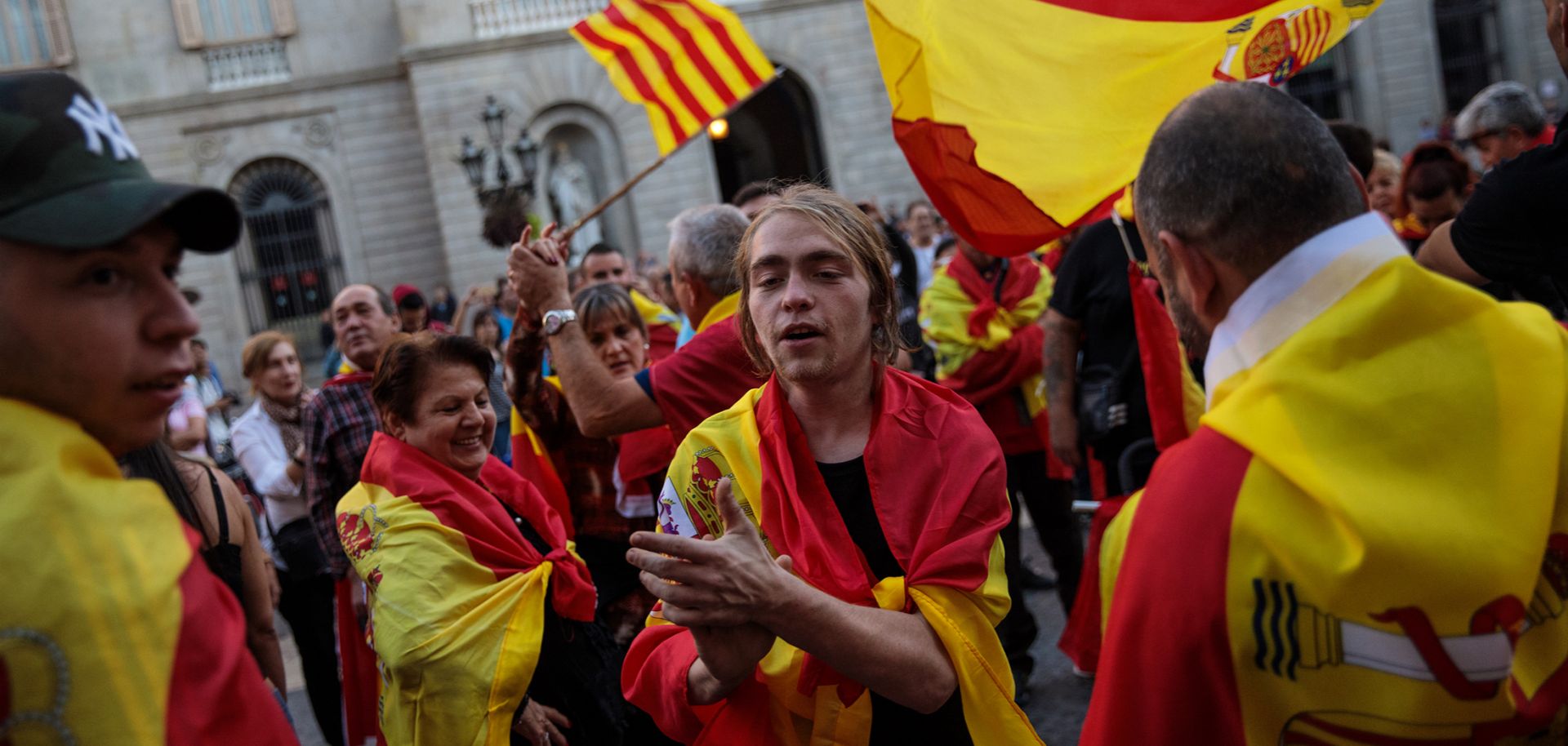COLUMNS
How Geopolitics Is Bringing Nationalism Back to Spain

Feb 21, 2019 | 10:00 GMT

Nationalist supporters gather outside the Catalan government building, the Palau de la Generalitat, following a pro-unity protest on October 29, 2017, in Barcelona, Spain. Thousands of pro-unity protesters gathered in Barcelona, two days after the Catalan Parliament voted to split from Spain.
(JACK TAYLOR/Getty Images)
Highlights
- Like so many other European countries, Spain is now experiencing a re-emergence of nationalism. In Spain's case, it is occurring as a reaction to Catalan separatism.
- Spain's geography has contributed to competing nationalisms in the country, which has led to resistance in the country's periphery to Madrid's centralizing efforts.
- The April 28 general election will most likely result in a fragmented parliament, opening the door for nationalists to be key in the formation of a government. This would lead to renewed discord with Catalonia and potential clashes with the European Union.
- Calls for constitutional reform will grow louder, but political fragmentation would make that process increasingly difficult to complete.
Subscribe Now
SubscribeAlready have an account?
